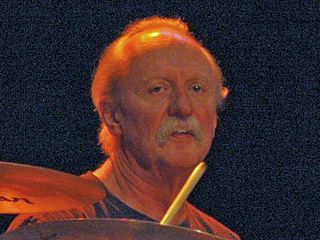A Quote by Charles Churchill
In the first seat, in robe of various dyes,
A noble wildness flashing from his eyes,
Sat Shakespeare: in one hand a wand he bore,
For mighty wonders fam'd in days of yore:
The other held a globe, which to his will
Obedient turn'd, and own'd the master's skill:
Things of the noblest kind his genius drew,
And look'd through nature at a single view:
A loose he gave to his unbounded soul,
And taught new lands to rise, new seas to roll;
Call'd into being scenes unknown before,
And passing nature's bounds, was something more.
Quote Topics
Before
Being
Bore
Bounds
Call
Days
Drew
Eyes
First
Flashing
Gave
Genius
Globe
Hand
Held
His
His Eyes
Kind
Lands
Look
Loose
Master
Mighty
More
Nature
New
Noble
Noblest
Obedient
Other
Own
Passing
Rise
Robe
Roll
Sat
Scenes
Seas
Seat
Shakespeare
Single
Skill
Something
Soul
Taught
Things
Through
Turn
Unknown
Various
View
Wand
Which
Wildness
Will
Wonders
Related Quotes
Strange is the vigour in a brave man's soul. The strength of his spirit and his irresistible power, the greatness of his heart and the height of his condition, his mighty confidence and contempt of danger, his true security and repose in himself, his liberty to dare and do what he pleaseth, his alacrity in the midst of fears, his invincible temper, are advantages which make him master of fortune.
A scientist sets out to conquer nature through knowledge - external nature, external knowledge. By these means he may split the atom and achieve external power. A yogi sets out to explore his own internal nature, to penetrate the atom (atma) of being. He does not gain dominion over wide lands and restless seas, but over his own recalcitrant flesh and febrile mind.
Man is a spiritual being, a soul, and at some period of his life everyone is possessed with an irresistible desire to know his relationship to the Infinite. . . . There is something within him which urges him to rise above himself, to control his environment, to master the body and all things physical and live in a higher and more beautiful world.
He is not the soul of Nature, nor any part of Nature. He inhabits eternity: He dwells in a high and holy place: heaven is His throne, not his vehicle, earth is his footstool, not his vesture. One day he will dismantle both and make a new heaven and earth. He is not to be identified even with the 'divine spark' in man. He is 'God and not man.
And in vain does the dreamer rummage about in his old dreams, raking them over as though they were a heap of cinders, looking into these cinders for some spark, however tiny, to fan it into a flame so as to warm his chilled blood by it and revive in it all that he held so dear before, all that touched his heart, that made his blood course through his veins, that drew tears from his eyes, and that so splendidly deceived him!
The real master is only a presence. He has no intentions of being a master. His presence is his teaching. His love is his message. Every gesture of his hand is pointing to the moon. And this whole thing is not being done, it is a happening. The master is not a doer. He has learned the greatest secret of life: let-go. The master has drowned his ego and the idea of separation from existence itself.
Sometimes he caught himself listening to the sound of his own voice. He thought that in her eyes he would ascent to an angelical stature; and, as he attached the fervent nature of his companion more and more closely to him, he heard the strange impersonal voice which he recognised as his own, insisting on the soul's incurable lonliness. We cannot give ourselves, it said: we are our own.
One that really caught me was Joe Morello. He was the first drummer I ever saw that could do a roll with one hand. He would turn his hand over and use his fingertips to get the stick bouncing. He could sit there with his right hand doing stuff on the cymbals and tom-toms while he was doing a roll with his left on the snare drum.
The first step to be taken by one who wishes to follow Christ is, according to Our Lord’s own words, that of renouncing himself - that is, his own senses, his own passions, his own will, his own judgement, and all the movements of nature, making to God a sacrifice of all these things, and of all their acts, which are surely sacrifices very acceptable to the Lord. And we must never grow weary of this; for if anyone having, so to speak, one foot already in Heaven, should abandon this exercise, when the time should come for him to put the other there, he would run much risk of being lost.







































